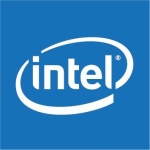I specifically purchased it to address a need I have for DPM. I needed DPM to back up to a specific location in both of my datacenters that I have in Ireland. I needed just a lump of slow storage, but that was big, to take 30-day disk backups before they were offloaded to tape. In that sense, it ticked all the boxes and it's been working fine for that.
Now, I'm moving on to StoreOnce, but I'm going to repurpose the Apollos after this. I don't know what I'm going to use them for after this, because DPM is gone. Moving on to Veeam and StoreOnce.
It's really very clever the way it manages to hide the disks away. This idea of pulling out the little trays, I just think that's really, really clever. It's very reliable. I haven't had a single failure at all in the year and a half; not the slightest problem with it. It's been a pretty good product so far.
One drawback which I had: When I needed to expand storage on the Apollo, I had significant problems getting disks for it. It was a very long wait-time. So, if I were to give any advice in regards to improving this product, I would say make more of the 8TB disks available quicker. I ended up having a few issues because I ran out of space. There was a huge lead time while I waited for new disks to arrive here. It left me a bit exposed there for awhile.
But that's the only criticism. Other than that, I think it's a great product. It's really good. Really reliable. Very cleverly designed and I can't think of what better way they could pack more disks into such a small space, so all around it's a good product.
One to three years.
If I get through to the right person, support is very, very good. If I don't get through to the right person, it can be irritating and it can be cumbersome. So to me, the key is getting straight through to the person that's going to be able to help. I don't ring up for Mickey Mouse things. I just ring up when I need something bulked. I try my best to automate as much of the call logging because I have a lot of calls; it's much easier for me to do that online.
So that element generally works quite well, and generally I like the way it works. If I get a call logged online, it usually goes through to the right person, and I usually get a call back. I get actions done pretty quickly on that.
If, however, for whatever reason I have to ring up, I might get through to the wrong section. I've had some hit and miss affairs that have just irritated me. But when I do get through to the right person, I've found in the past, they're very good, generally speaking.
The Apollo was very straightforward. That was nice and easy. Some of my other products, my 3PARs and so on, a lot more complex. But the Apollo, that was nice and straight, easy.










